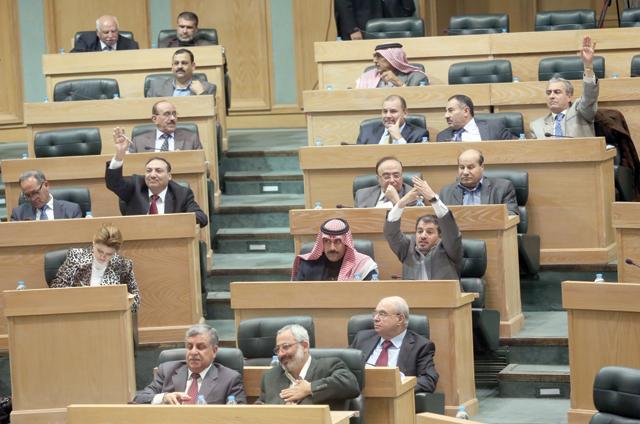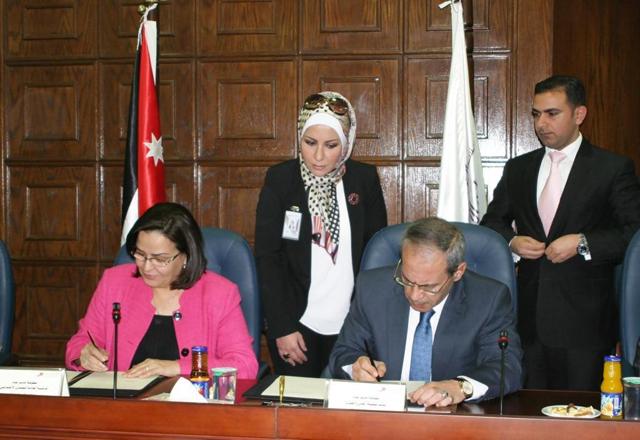AMMAN — Landowners on Tuesday offered to donate portions of their private land, located on an archaeological site dating back 5,000 years, to help preserve it from a sprawling Amman.
Threatened by a lack of funds and the expansion of the airport highway, excavation on the Tal Al Umayri site was brought to a halt in 2012, and is due to resume later this year.
“Archaeological heritage must not become a casualty of ill-planned progress,” HRH Princess Sumaya, vice chair of the Jordan Museum’s Board of Trustees, said at a meeting to discuss safeguarding the archaeological site.
“Political and economic progress must determine that the protection of our cultural heritage is neither forgotten nor ignored… As the city of Amman spreads its territory towards the site and the highway carries its traffic in Tal Al Umayri’s proximity, we must consider the transient of what we consider progress,” the princess said.
“We share our territory with the physical remnants of human ingenuity, of creativity and of a dogged determination to survive. But these abundant material remains of lost and faded communities are also impressive reminders to us that we occupy our part of the earth, not as outright owners, but as custodians,” she stressed.
Archaeologists and authorities are calling for transforming the area, which is sandwiched between Amman and Ghamdan national parks, into an all-encompassing archaeological park. “Our ultimate goal should be the creation and protection of an archaeological park of international significance,” the princess noted.
“Such a facility would provide an opportunity for educational purposes for Jordanians and visitors who often know little about this vast cultural heritage.”
With the earliest major settlement dating back to around 2500BC, Tal Al Umayri displays the development of human settlements over millennia on a surface of around seven hectares (70 dunums) with massive defences, including a dry moat and a rampart from the Early Bronze Age, as well as a preserved two-room stone building dating back to1500BC.
Minister of Tourism and Antiquities Nidal Katamine said Tal Al Umayri is part of the history of Jordan and has to be turned into a national park; however, much still needs to be done beyond land acquisition to transform the site into a local landmark.“Tal Al Umayri’s location makes it just a potential perfect park for showing the narrative of Jordan, which is my duty to protect,” Katamine said.
Stressing the importance of reaching an agreement between all parties involved to find a solution to sustain the archaeological site, Princess Sumaya said all participants in the project must be unified.
“When it comes to important archaeological sites such as the one we are discussing today, I believe that we can develop between us a range of solutions to ensure that all concerned parties are unified and satisfied that the correct procedures are being developed to protect all our interests.”
Having worked on the site for the past 30 years, Doug Clark, professor of Near Eastern Archaeology at La Sierra University California, said he set two primary goals to achieve at Tal Al Umayri.
“My first goal would be to preserve, protect and present Jordan’s considerable cultural heritage; the second to protect the considerable investment of landowners in this property. I am looking for a win-win situation for all the project’s stakeholders,” he said.
With proposals ranging from a government purchase of the privately owned land to a stalling land swap, landowners offered to donate a portion of their land to the project despite its high property value, estimated at around JD100,000 per dunum.
“I want this meeting to end with something tangible; therefore, I will donate part of my property to the project for the establishment of an archaeological park comprising Tal Al Umayri,” Raouf Abujaber said, adding that Jebril Abu Aishah will also agree on donating some of his land.
An overall surface of 10 hectares (100 dunums) would be required for the archaeological park project and its facilities.
“Tal Al Umayri is a non-renewable resource that we must guard well and an asset that can spread economic and social value but only if properly managed... we must battle to save it from damage and destruction as Amman spreads inexorably southwards,” Princess Sumaya said.


















